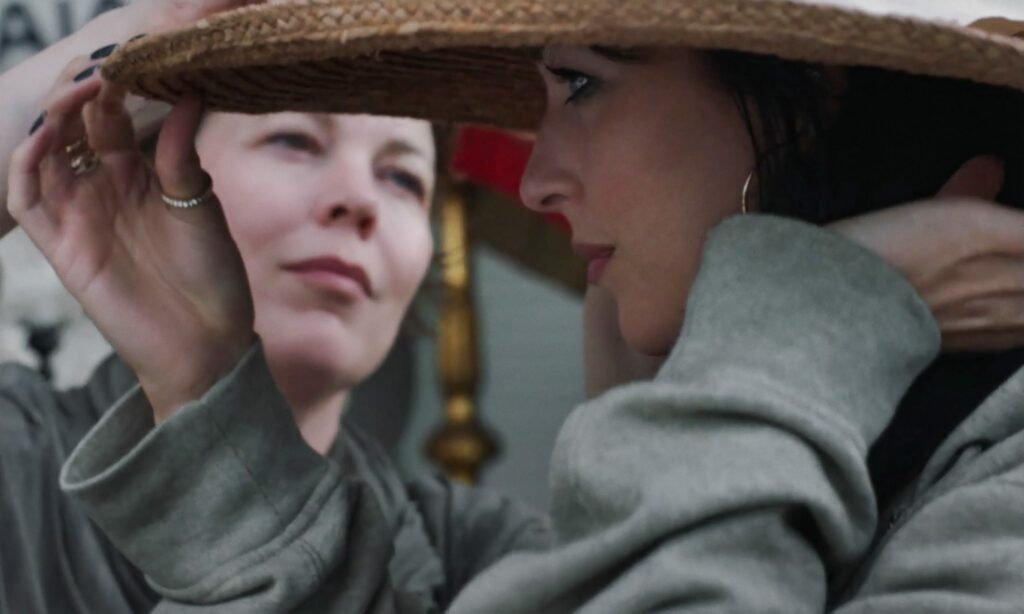
The Lost Daughter
Dustin Chase
“Children are a crushing responsibility,” Olivia Colman’s character says to a young mother. How “The Lost Daughter” came to be a motion picture is almost as fascinating as the film itself.
The mysterious author, Elena Ferrante, is anonymous (her identity and location are unknown). She emailed actress Maggie Gyllenhaal, giving her the rights to turn her book into a film, only if Gyllenhaal would also direct. Thus Gyllenhaal is making her writing and directing debut on a film that’s swirling with awards buzz, nabbing best screenplay at the Venice Film Festival.
At a press conference in New York, Gyllenhaal admitted her interest in both Ferrante’s work and specifically this story was to create dialogue about the topics we’re not supposed to talk about.
Leda (Colman) arrives on Spetses, Greece, for a work holiday, spending time away from her busy work schedule as a professor back in Boston. The caretaker of her villa is a sweet and nosy local named Lyle (Harris) who drags out his welcome longer than Leda has patience for. When she finally makes it to the local beach, her serene relaxation is interrupted by more locals, one of whom she becomes quite enamored with.
Nina (Dakota Johnson) is a young mother struggling with the difficulties of motherhood. When Nina’s daughter gives everyone on the beach quite a scare, the two women become acquainted, one holding a secret over the other. This new friendship conjures up painful memories of Leda’s past as she too struggled with the demands of motherhood.
Colman goes from complete dry eye to full-on tears in one moment that’s as fascinating to watch as it is emotional. It’s one of the year’s best performances.
The scene where Leda refuses to yield her umbrella to the obnoxious family on the beach is the moment where “The Lost Daughter” takes things up a notch. We have all been in that kind of scenario. It’s also the moment that confirms Oscar-winner Colman (“The Favourite,” “The Father”) is no longer just a supporting actress. Her performance here is a balancing act of subtlety in some scenes and powerhouse in others.
In another scene, Colman goes from complete dry eye to full-on tears in one moment that’s as fascinating to watch as it is emotional. It’s one of the year’s best performances.
Jessie Buckley (“Wild Rose”) also continues to impress; here she is Leda in the hefty flashbacks. In what could have been a drag on the narrative, Buckley and the screenplay keep that side of the story just as interesting.
From the wispy island location to the colorful characters and the enveloping score by Dickon Hinchliffe, Gyllenhaal proves she can assemble quite a powerful and memorable film on her first try. Her adaptation of the novel is quite impressive, changing slight intentions and moments that work better for the screen. The film doesn’t fit in one particular genre and is all the more interesting for it. Elements of romance, drama, comedy and suspense swirl around, leaving the viewer with lots to think about.
There’s much left unsaid, giving room for interpretation. “The Lost Daughter” isn’t a film for everyone, but its nuance about “unnatural mothers” is a fascinating topic.
Final Thought
One of the best films, screenplays and performances of the year.

